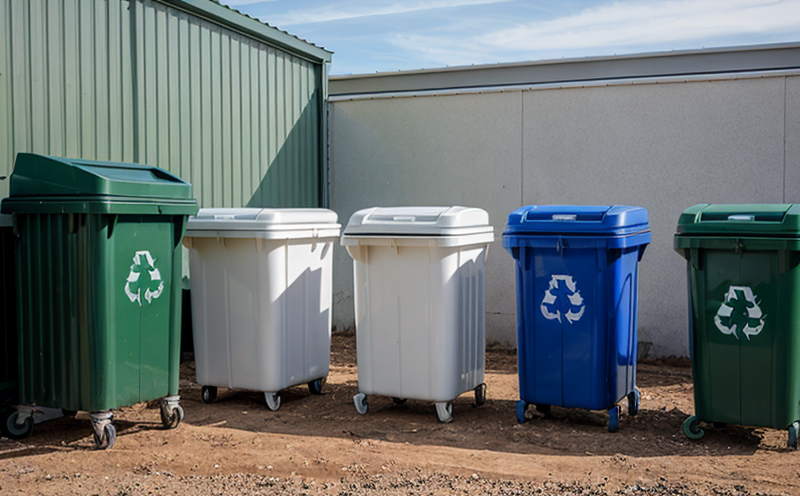ASTM D7611 Identification of Recyclable Plastics
The ASTM D7611 standard provides a method for identifying plastics that are suitable for recycling. This is crucial in the modern manufacturing and packaging industries, where sustainability is at the forefront of innovation. By accurately identifying recyclable plastics, manufacturers can ensure they are using materials that contribute positively to environmental conservation efforts.
The ASTM D7611 test involves subjecting samples to a series of chemical treatments designed to identify the presence of specific monomers or functional groups characteristic of various polymer types. This process allows for precise categorization and sorting of plastics, which is essential for recycling facilities to process materials efficiently.
During sample preparation, it's important to consider factors such as temperature control, humidity levels, and the type of container used to avoid contamination or degradation of the plastic samples. Once prepared, the samples undergo a series of tests including spectroscopic analysis, chromatography, and other chemical analyses to determine their composition.
The identification process is critical for several reasons:
- To ensure compliance with local and international regulations regarding recycling practices.
- To enhance the efficiency of waste management systems by accurately sorting plastics into appropriate categories.
- To support research and development in creating more sustainable packaging solutions.
- To improve product quality by using recycled materials that meet specific standards.
The ASTM D7611 method is widely recognized for its accuracy and reliability, making it a preferred choice among industry professionals. This test not only aids in the identification of recyclable plastics but also helps in reducing landfill waste and promoting circular economy principles.
Our laboratory uses state-of-the-art equipment to ensure precise results. Our team of experts ensures that each sample is handled with care, from initial preparation to final analysis. We provide comprehensive reports detailing the composition of the plastic samples tested, which can be invaluable for decision-makers in the packaging sector.
Applied Standards
| Standard Code | Description |
|---|---|
| ASTM D7611-08(2019) | This standard specifies the procedure for the identification of plastics suitable for recycling by means of chemical analysis. |
| ISO 14040:2006 | Environmental Management System - Requirements with guidance for use. |
| Test Method | Description |
|---|---|
| Spectroscopy | Used to identify the presence of specific chemical bonds and functional groups. |
| HPLC (High-Performance Liquid Chromatography) | Aids in separating complex mixtures, allowing for precise quantification. |
Customer Impact and Satisfaction
Our customers benefit significantly from our ASTM D7611 Identification of Recyclable Plastics service. By providing accurate identification, we enable our clients to make informed decisions about the materials they use in their packaging products. This leads to more sustainable practices, reduced waste, and improved compliance with environmental regulations.
Our comprehensive reports not only assist in meeting regulatory requirements but also contribute to the development of innovative solutions that support a circular economy. Many of our clients have reported increased efficiency in their recycling processes, leading to cost savings and enhanced product quality.
We strive to exceed customer expectations by offering reliable, accurate results on time. Our commitment to excellence ensures that our services are always up-to-date with the latest industry standards and technologies. This dedication has earned us a reputation for trustworthiness and reliability in the packaging testing sector.
International Acceptance and Recognition
- The ASTM D7611 standard is widely accepted across North America, Europe, and Asia-Pacific regions.
- It is recommended by the United Nations Environment Programme (UNEP) for its role in promoting sustainable waste management practices.
- Many countries have incorporated ASTM D7611 into their national standards for recycling.





